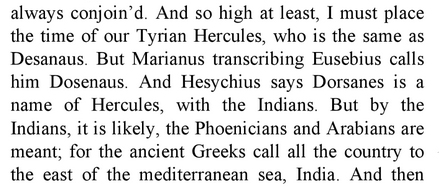Just compare Kurdish phonology: https://en.wikipedia.org/wiki/Kurdish_phonology to Proto-Greek phonology: https://en.wikipedia.org/wiki/Proto-Greek_language#Phonology
Why there should be aspirated voiceless stops (pʰ, tʰ, kʰ, ...) and labiovelars (kʷ, gʷ, ...) in Kurdish phonology, whereas we know they never existed neither in Proto-Iranian, nor Indo-Iranian and even Satem languages? Of course labiovelars also existed in Hittite phonology: https://en.wikipedia.org/wiki/Hittite_phonology but what about aspirated voiceless stops?
It seems to be true to say Kurds were originally a non-Indo-European people (probably South Caucasian/Iberian) who adopted Proto-Indo-European language (https://en.wikipedia.org/wiki/Proto-Indo-European_phonology), so for example we see Proto-IE aspirated voiced stops (*bʰ, *dʰ, *gʰ) which didn't exist in their language, were changed to aspirated voiceless stops (pʰ, tʰ, kʰ), and some other sound changes which could make nothing except Proto-Greek language. Afterwards Iranian-speaking conquered Kurdish lands in Anatolia, north of Iraq/Syria and west of Iran, and these people adopted an Iranian language.
Why there should be aspirated voiceless stops (pʰ, tʰ, kʰ, ...) and labiovelars (kʷ, gʷ, ...) in Kurdish phonology, whereas we know they never existed neither in Proto-Iranian, nor Indo-Iranian and even Satem languages? Of course labiovelars also existed in Hittite phonology: https://en.wikipedia.org/wiki/Hittite_phonology but what about aspirated voiceless stops?
It seems to be true to say Kurds were originally a non-Indo-European people (probably South Caucasian/Iberian) who adopted Proto-Indo-European language (https://en.wikipedia.org/wiki/Proto-Indo-European_phonology), so for example we see Proto-IE aspirated voiced stops (*bʰ, *dʰ, *gʰ) which didn't exist in their language, were changed to aspirated voiceless stops (pʰ, tʰ, kʰ), and some other sound changes which could make nothing except Proto-Greek language. Afterwards Iranian-speaking conquered Kurdish lands in Anatolia, north of Iraq/Syria and west of Iran, and these people adopted an Iranian language.
Last edited:


